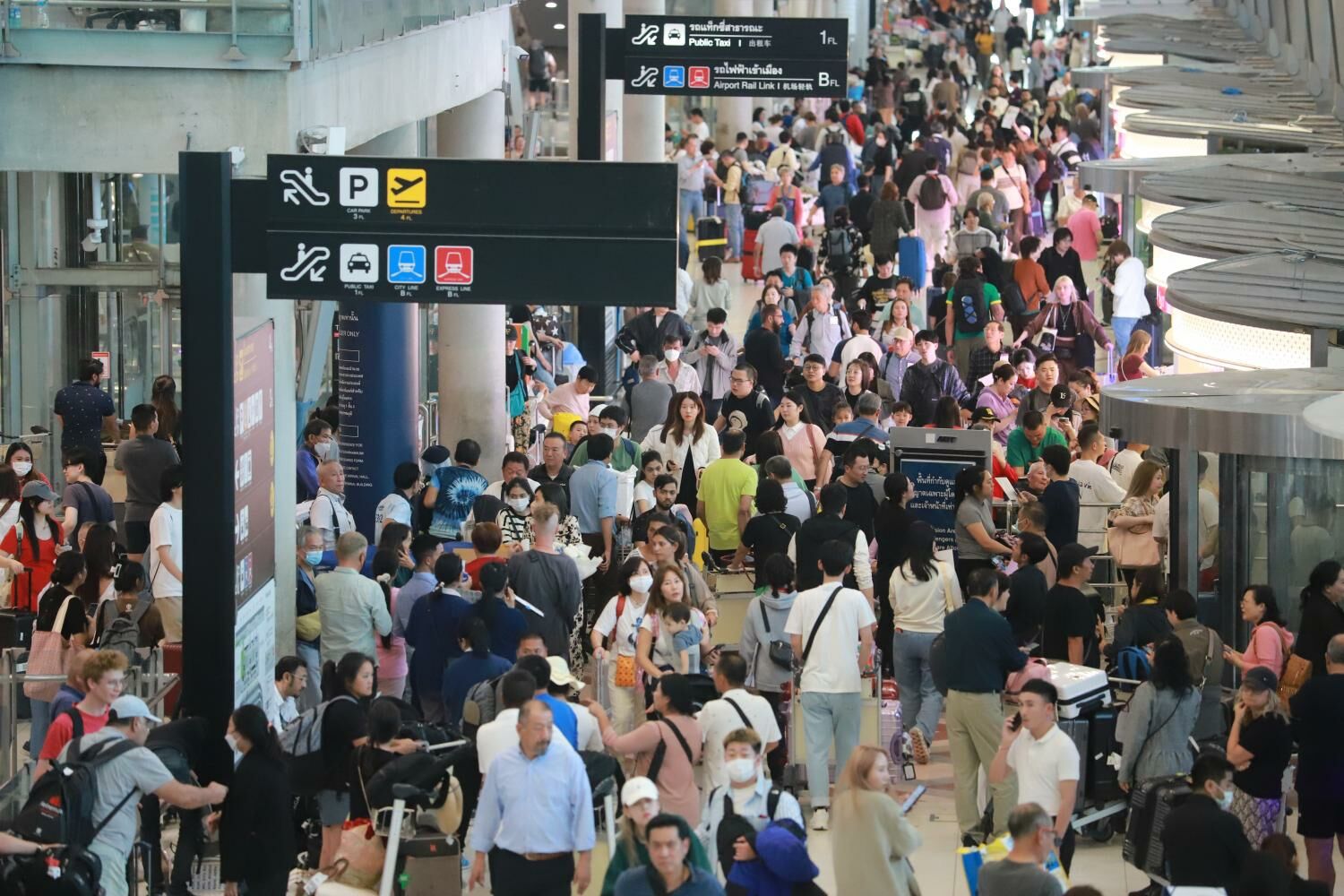Thai tourism index for Q4 2023 signals risk of deflation

The Tourism Council of Thailand’s (TCT) quarterly index has reported a lower-than-normal confidence level for the fourth quarter of 2023, signalling concerns among operators about the risk of deflation and delayed fiscal budget disbursement. The Thai tourism index for the last quarter of the year scored 77, with 100 being the average; this is an increase from the third quarter’s score of 69, and the fourth quarter of 2022’s score of 72.
Foreign arrivals during the last quarter of 2023 were 22% fewer than the same time in 2019. While confidence for the first quarter of this year increased to 82, it fell short of the 98 recorded in the same period of 2019.
TCT President Chamnan Srisawat attributed the rise in confidence to the tourism high season and end-of-year festivals. However, he noted that Chinese travellers’ safety concerns impeded growth. The survey revealed tourism operators’ fears that deflation and a sluggish global economy could impact tourism purchasing power, leading to reduced revenue.
In the fourth quarter of 2023, operators’ income was 58% of the level recorded in the same period in 2019. The first quarter of 2023 saw incomes at 64% of the 2019 level, and the second quarter of last year reached 60% of the 2019 level, reported Bangkok Post.
According to the TCT survey, hotels across the country reported an average occupancy rate of 62% during the final quarter of 2023. They earned 63% of the pre-pandemic income, with larger hotels recording the highest occupancy rate at 76%, followed by mid-scale hotels at 67% and small hotels at 58%.
With regards to employment, the fourth quarter of 2023 saw tourism operators employing 88% of the staff number compared with the same period in 2019, a dip from the second quarter’s 90%.
Chamnan Srisawat noted that Thai people’s average spending while travelling was expected to decrease in this year’s first quarter. As many as 73% of 418 respondents reported they would be more cautious compared to their pre-pandemic spending behaviour. Approximately 79% intended to reduce their expenditure on travel and entertainment.
He added that 85% of operators wanted the government to focus on strengthening local communities with the potential to offer new Thai tourism routes and choices. They also called for a reduction in luxury item tax to encourage spending among foreign visitors.
Latest Thailand News
Follow The Thaiger on Google News:


























